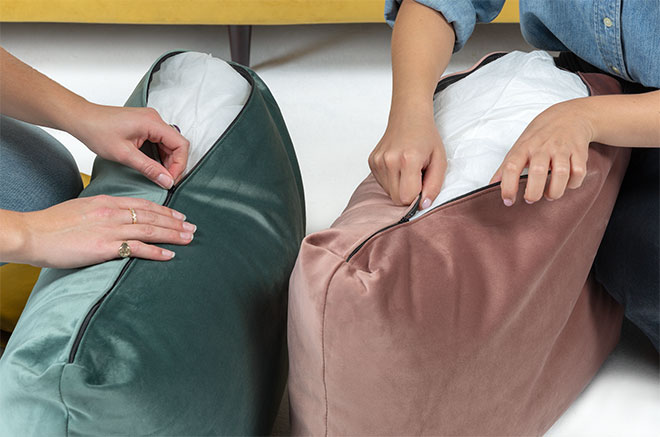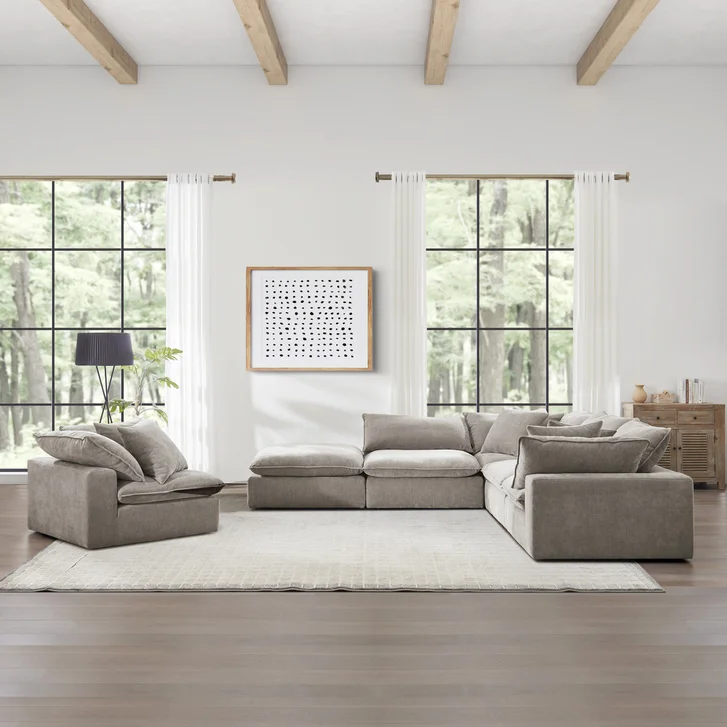Sabai's goal, according to co-founder Phantila Phataraprasit, is to pioneer a new standard for the furniture industry and its recently launched program aims to cut furniture waste whilst offering more affordable and accessible options for purchasing its sofas.
 |
The Sabai Standard consists of two initiatives that make it easy for customers to repair damaged parts and sell back older sofas. Through the Closed Loop Program, Sabai will buy back a couch at up to 20% of the second hand price in credit or 15% in cash.
Sofas in good, clean condition will be available for sale in Sabai’s pre-owned line, Sabai Revive, which was launched to accommodate changing customer needs in a sustainable way. Sofas on Sabai Revive will be sold at a discount, and any that are not resold after three months will be donated.
The goal of Sabai Revive is to make its sustainable sofas (which start at around $1,000) even more accessible and affordable for consumers.
Review: The Sabai Essential Sectional Review: A Sustainable Sofa at an Affordable Price
In the second component of the Sabai Standard initiative, Repair Don’t Replace, Sabai will offer affordable upgrades to any worn or damaged parts of their furniture, extending the life cycle of their sofa and saving them from buying an entirely new piece. Customers can switch in new components instead of replacing the entire sofa, extending the life of the sofa and reducing furniture waste.
 |
Waste is a huge problem in the furniture industry and Sabai has found that making new furniture can release over 1000 times more carbon dioxide than restoring furniture. The Sabai Standard empowers Sabai’s customers to reduce their carbon footprint, making every step from purchase through repair and resale environmentally sound.
With Sabai’s first year of sales alone, the Closed Loop Program could prevent over 1,160.20 cubic yards of furniture waste—enough to fill about 10 swimming pools. For every Sabai sofa that is kept from landfill, their customers will prevent 1.3 cubic yards of furniture waste from entering the landfill. The carbon footprint of each sofa purchased through Sabai Revive will decrease by 82%.
In preparation for the launch of the Closed Loop Program, Sabai redesigned its sofas by eliminating any glue which now guarantees that all their materials can be reused, reupholstered, or recycled-- and no chemical off-gassing and allows for even easier repairs. It has also debuted three new velvet sofa colorways — Sea Foam, Dusty Rose and Mustard.
The conventional business model, according to Phantila, is "for companies to focus on selling as many new products to as many people as possible." Finally, this model is changing, as a new generation of conscious consumers pushes for more transparency and more durable products. "Sabai Revive represents a unique opportunity for us to build trust with our customers while expanding to an entirely new market. We strive to make it seamless for consumers to incorporate sustainability practices into their homes."















